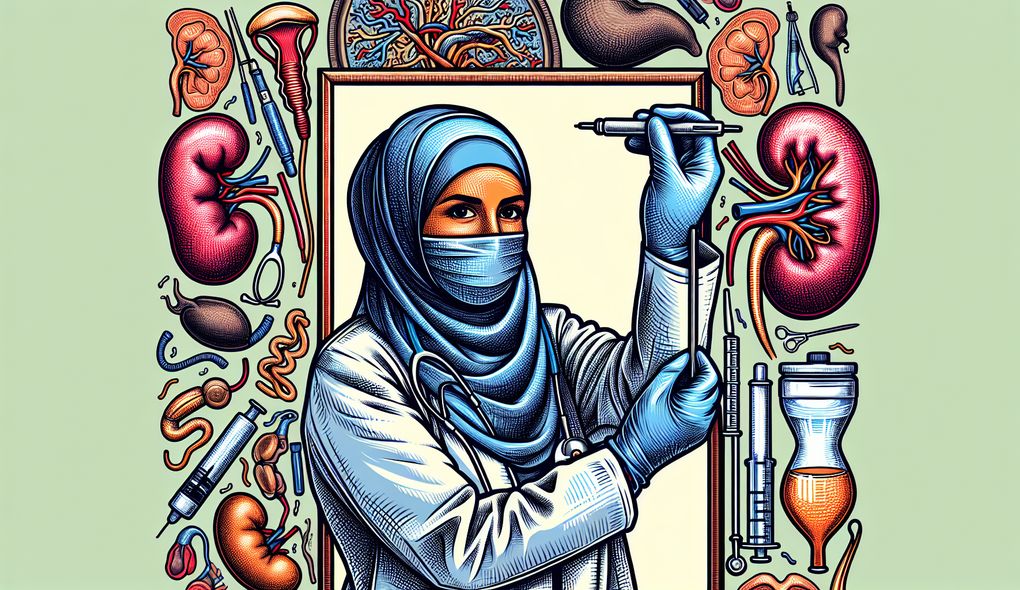How do you prioritize and manage your workload to ensure efficient patient care?
INTERMEDIATE LEVEL

Sample answer to the question:
To prioritize and manage my workload for efficient patient care, I first assess the urgency and severity of each case. I then create a daily schedule and allocate time for consultations, surgeries, and follow-up appointments. I prioritize urgent cases and ensure that patients with critical conditions receive immediate attention. I also make use of electronic medical records and technology to stay organized and track patient progress. Additionally, I collaborate with other healthcare professionals to streamline the workflow and provide seamless patient care.
Here is a more solid answer:
To prioritize and manage my workload for efficient patient care, I adopt a systematic approach. Firstly, I thoroughly review the patient's medical history and evaluate the severity and urgency of their condition. This helps me determine the priority level for each case. I then create a well-organized daily schedule that allocates sufficient time for consultations, surgeries, and follow-ups. By adhering to this schedule, I ensure that no patient is kept waiting for an extended period of time. I also utilize electronic medical records and advanced technology to efficiently manage patient information and track their progress. Collaboration is key in healthcare, and I actively communicate and collaborate with other healthcare professionals to ensure comprehensive and coordinated care for our patients. This involves regular interdisciplinary meetings and discussions to discuss complex cases and develop treatment plans together. By working collaboratively, we can avoid duplication of efforts and optimize patient outcomes.
Why is this a more solid answer?
This answer is solid because it provides specific details and examples to highlight the candidate's approach to prioritizing and managing their workload. They emphasize the importance of reviewing patient history, creating a well-organized schedule, utilizing technology, and collaborating with other healthcare professionals. However, the answer could be improved by including more specific examples of how the candidate has successfully implemented these strategies in their previous work experiences.
An example of a exceptional answer:
Efficient patient care is vital in urology, and I prioritize and manage my workload meticulously to ensure optimal outcomes for every patient. Firstly, I employ a multidimensional approach where I assess the severity, urgency, and complexity of each case. This allows me to accurately triage patients based on their needs. To streamline my workflow, I use a combination of electronic medical records and task management systems, enabling me to efficiently schedule appointments, surgeries, and follow-ups. By leveraging these tools, I minimize administrative tasks and dedicate more time to direct patient care. Collaboration is at the heart of effective healthcare, and I actively engage in interdisciplinary discussions with nurses, technicians, and other specialists. This collaborative approach promotes information sharing, reduces communication gaps, and improves overall care coordination. Finally, I regularly evaluate my own performance and seek feedback from patients and colleagues. This continuous improvement mindset allows me to refine and optimize my workload management strategies for enhanced efficiency and patient satisfaction.
Why is this an exceptional answer?
This is an exceptional answer because it goes above and beyond in addressing each evaluation area. The candidate provides a comprehensive and detailed explanation of how they prioritize and manage their workload. They showcase their ability to assess patient needs, effectively use technology, collaborate with healthcare professionals, and demonstrate a commitment to continuous improvement. The candidate also emphasizes the importance of patient satisfaction and outcomes in their approach.
How to prepare for this question:
- Familiarize yourself with the typical workload of a urologist and the various responsibilities involved
- Reflect on your past experiences and identify instances where you successfully prioritized and managed your workload to ensure efficient patient care
- Research and stay updated on the latest advancements in urology technology and electronic medical record systems
- Practice articulating your approach to workload management and patient care in a clear and concise manner
- Prepare specific examples and anecdotes to illustrate your skills and experiences in prioritizing and managing your workload
- Highlight your ability to collaborate with other healthcare professionals and the importance of teamwork in providing efficient patient care
What are interviewers evaluating with this question?
- Efficient patient care
- Workload management
- Collaboration with healthcare professionals
- Use of technology

